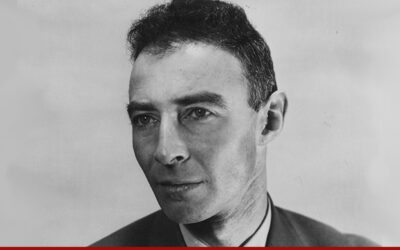Here’s some feel-good tech news. Let’s virtually toast the next generation of problem solvers and remind the industry to embrace next-generation entrepreneurs.
I met the Seattle teenagers Sage Khanuja and Nikolas Ioannou when they were in high school. At ages 15 and 16 respectively, they were among 5 winners of Young Innovators to Watch, an event our company Living in Digital Times created at CES to award students for entrepreneurial/high tech achievements. Over the years we’ve awarded fifty-plus students, many of whom have gone on to accomplish great things in college and their careers.
Award winners get flown to CES, present their projects, receive an award and meet with companies that could take an interest in their work.
At CES in January, the two presented a project called Spira. It was a low-cost 3D-printed device that could, when administered with a mobile app survey, detected early signs of COPD (Chronic obstructive pulmonary disease). Patients would simply breathe into the $15 device, which acted like a digital stethoscope.
It’s called auscultation, and when combined with the survey was analyzed by their machine-learning algorithms to predict breathing problems. The plan was to deploy the device in developing countries like India. According to WHO, the incidence of respiratory disease in India is 10 times greater than elsewhere.
There’s more. They took advantage of their CES trip to do a deep dive into the many digital health companies that were exhibiting. Khanuja told me that while they expected to see gadgets and gear at CES, they were surprised by the number of medical companies. At a dinner we hosted, they were inspired by people like Samir Husani of MedWand (a CES Innovation Award winner) along with other speakers and presenters from companies like Philips, Tivic Health, Olive Health Care and others. Sage said, “after talking to the exhibitors it became clear to me that we should be part of the bigger holistic theme of preventative digital health, particularly telemedicine.”
A few months is an eternity in the life of teenage entrepreneurs. The guys called me on Zoom last week to catch me up. In the meantime, just since January, both have skipped 11th and 12th grade and are already now freshman at the University of Washington. Both were self-isolating in their respective Seattle homes.
But they’ve been hard at work pivoting from the original 3D-printed device to developing a smartphone-based technology to offer clinical-quality testing to assess lung capacity just with the phone alone. The basic idea is the same as their original idea, just no need for hardware. You cough into your phone’s microphone, to generate information about your lung capacity, and then place the phone on your pectorals to see if your chest has an audible crackle or wheeze. Coupled with the simple survey a patient can be screened for respiratory issues instantly.
Of course, since I met them the world has become obsessed with fighting Covid-19, a disease which very often leads to respiratory symptoms. So the move to smartphone diagnostics created something like a perfect storm for Khanuja and Ioannou. “At CES we realized that while the low cost printed device is great for certain geographies,” said Khanuja, “we also had a market in the telemedicine area. Especially now. Your smartphone’s mic coupled with our machine learning algorithms and our survey could perform the initial respiratory screening.”
There’s value on the doctor’s side of the equation as well. Ionnaou explained the economics: “A telehealth visit costs about $80 for a fifteen-minute consultation, but you spend half of that time getting the patients basic history and symptoms. What if you could know about the patient’s respiratory symptoms before the call was initiated? What if you could cough into your phone and we could analyze the cough!”
“Right now”, added Khanuja, “other than HIPAA compliance, telemedicine isn’t much different from the zoom call we’re having.”
Today, barely four months after attending CES, the duo is running Spira.AI, an early Covid-screening detection process. At the moment they’re offering a Covid-19 screening survey to let people know if they have reason to pursue more medical attention. And as if that weren’t enough, these two innovators also developed an SMS notification system where you can type in your phone number and get Covid stats for your state, country, and the world, texted to you daily.
On the backend, they’re working with a physician who works with both Teladoc and Amwell, two large telemedicine firms where they’re piloting their smartphone clinical assessment. With the survey, they hope to amass a large database of Covid-19 symptoms. With the smartphone and underlying algorithms, which they are actively working to refine, they aim to fill an important niche in telehealth. Ultimately they figure that if they can charge something on the order of twenty cents a test it would be a no-brainer for busy telehealth companies battling the clock trying to serve an increasingly-large patient roster looking for respiratory diagnoses. They hope to be able to cut the time a virtual doctor takes for such a diagnosis in half.
Meanwhile, the two, still kids, keep stacking up wins. They were recently awarded the Herbert B. Jones Foundation Third Prize and the Holloman Health Innovation Challenge for their work screening respiratory disease with machine learning. They did have advantages from the outset. Khanuja’s dad is a retired business executive at Amazon, and his aunt works as a physician for both Teladoc and Amwell and has been advising them about how to save telehealth systems’ time and to make the best diagnosis. Ioannou’s father is a physician and researcher. And at UW in Seattle the resources are many.
On a personal note, there’s nothing that makes you feel better than having two students call you up to tell you that you provided something that changed their lives. The message I take away is to keep searching for, recognizing, and celebrating talent at any age. Heavens knows we need some great answers to important problems.
Source: https://techonomy.com/2020/05/inspired-at-ces-seattle-teenagers-tackle-tech-to-diagnose-covid-19/




